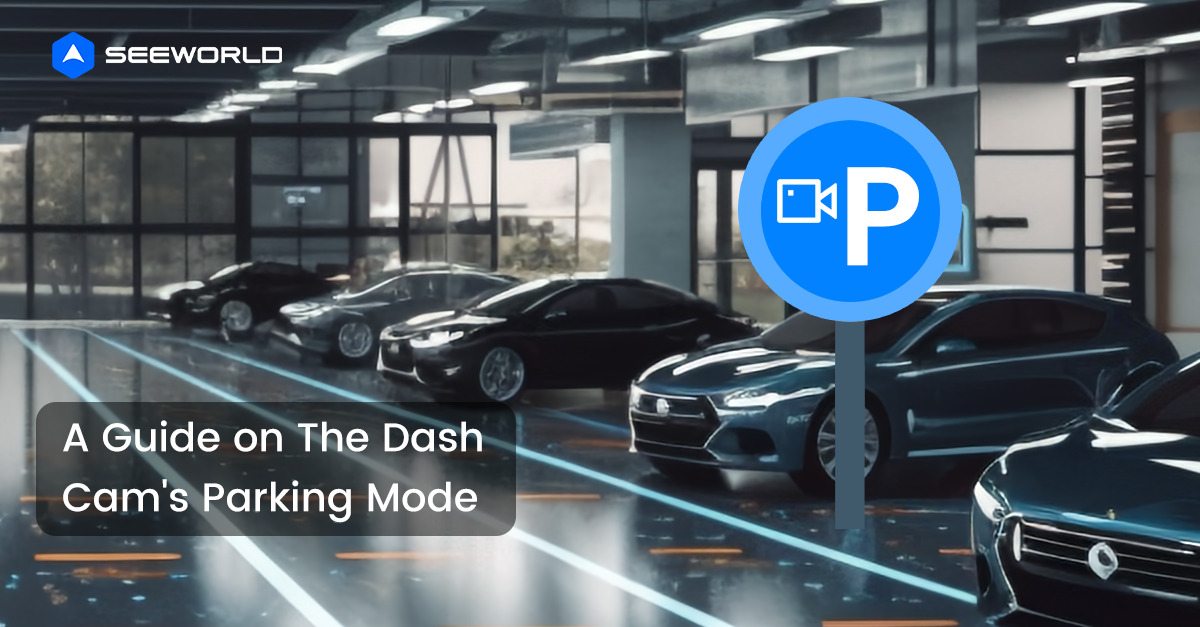The Global Positioning System (GPS) technology stands as a groundbreaking innovation, transforming how fleets navigate and manage their vehicles globally. Its increasing advancement has made GPS an essential tool for providing driving directions and vehicle monitoring.
Yet, despite its prevalent use, the intricacies of how GPS tracking functions and the diverse applications it supports remain unknown to many.
Continue reading to gain insights into the workings of GPS tracking and explore some of the significant advantages offered by this technology.
What Is a GPS Tracking Device?
GPS tracking devices are portable units designed for monitoring and tracking their location, with their most frequent application being in vehicles as car tracking systems.
These devices, while often likened to in-car navigation systems, have distinct functionalities.
In-car navigation systems primarily assist drivers by displaying their location on a digital map and providing directions to a chosen destination.
GPS trackers, in contrast, utilize GPS technology not just to determine the current location of a vehicle but also to record its travel history. This collected GPS data is then transmitted to a device such as a computer, smartphone, or tablet, enabling continuous monitoring.
How Does GPS Tracker Work?
GPS trackers operate by connecting to a network of satellites, using a method called trilateration. This process involves calculating the device’s position based on the signals from at least three satellites in the Global Navigation Satellite System (GNSS) network, determining its latitude, longitude, elevation, and time.
Operating a GPS tracker is straightforward. In vehicles, these trackers are commonly powered by various sources like the onboard diagnostics (OBD-II) connector, a cigarette lighter, an accessory socket, or an internal battery. The gathered information is then relayed to specialized vehicle tracking software, enabling users to compile and scrutinize the data.
Regarding interaction with software, GPS trackers are categorized as active or passive. Active trackers provide real-time location updates, often integrated into managed services for continuous monitoring.
In contrast, passive trackers, typically more cost-effective than their active counterparts, store GPS data for later access and review. This distinction in functionality aligns with different tracking needs and budget considerations.
3 Main Types of GPS Tracker
GPS trackers for vehicles come in various types, each suited to different needs and vehicle types.
- Plug-In Vehicle GPS Trackers (OBD GPS Tracker): These trackers, like the SEEWORLD R56L OBD tracker, plug into a car’s OBD II port, commonly found in cars since the mid-1990s. They are compact, easy to install, and can detect the vehicle’s on/off status. The R56L model, for instance, offers the flexibility to switch between active and sleep states to conserve battery and notifies users when the vehicle starts or stops. Suitable for both personal and commercial use, these trackers are ideal for those seeking a portable and easy-to-use solution.
- Hardwired Car GPS Trackers: The SEEWOLRD S5L is an example of a hardwired GPS tracker that directly connects to a vehicle, especially useful in older models without an OBD II port. These trackers are typically hidden under the dashboard and offer the same benefits as plug-in trackers. They are favored by business owners and fleet managers for tracking work trucks and by families who need to track diesel or hybrid vehicles. Hardwired GPS trackers are particularly well-suited for comprehensive fleet management applications where features like engine diagnostics and driver behavior monitoring are valuable. Learn more about the differences between wireless and hardwired GPS trackers.
- Portable Battery-Powered GPS Trackers for Car: The SEEWORLD S11 represents battery-powered GPS trackers that don’t depend on a vehicle’s power supply. They are ideal for tracking items that aren’t powered, like trailers, cargo containers, and construction equipment. The S11’s long-lasting battery can function for months or even years without recharging, making it a versatile choice for various tracking needs.
RFID vs. GPS Tracking
GPS tracking is more appropriate for tracking over long distances or in open areas, while RFID is ideal for quick, efficient tracking and identifying items nearby.
GPS Tracking:
- How It Works: Utilizes a network of satellites in orbit around Earth.
- Purpose: To pinpoint the location of a GPS receiver anywhere on the planet.
- Technology: The system calculates the receiver’s exact location by triangulating signals from multiple satellites.
- Usage: Commonly used in navigation, tracking vehicles, smartphones, and various other applications requiring real-time location data.
RFID (Radio-Frequency Identification):
- How It Works: Employs electromagnetic fields to automatically identify and track tags attached to objects. These tags contain electronically stored information.
- Types: Passive RFID tags, which are powered by the reader’s electromagnetic field, and active RFID tags, which have their own power source.
- Range: Typically shorter than GPS, often used for close-range tracking and identification.
- Usage: Widely used in logistics, inventory management, retail, access control, and other applications where quick identification of objects is needed.
How Accurate Are GPS Trackers?
GPS tracking technology has established itself as an exact and dependable method for tracking and managing employees, vehicles, assets, and more.
The accuracy of the GPS tracker is noteworthy, as most devices can pinpoint locations with an accuracy of about 3 to 15 meters. This precision results from sophisticated GPS receivers and the incorporation of additional satellite systems like GLONASS, Galileo, and BeiDou.
Moreover, some GPS devices employ assisted GPS (A-GPS) technology to further improve location accuracy, particularly in cityscapes. This approach enhances traditional satellite data by integrating information from cellular towers and Wi-Fi networks, offering more precise and reliable tracking in areas with dense infrastructures.
What Are the Benefits of GPS Trackers?
In the dynamic landscape of transportation technology, businesses must recognize their fleet’s specific requirements and identify how emerging technologies can best contribute to their success.
GPS fleet tracking stands out as a robust and proven technology, offering far more than mere location tracking.
By comprehensively understanding the multifaceted benefits of GPS tracking, businesses can strategically assess how this technology aligns with their objectives.
Implementing GPS tracking not only enhances operational efficiency but also opens up possibilities for improved safety, cost reduction, and data-driven decision-making, thereby playing a key role in realizing the broader goals of a company.
GPS tracker devices provide precise location data, crucial for various applications ranging from personal safety to efficient fleet management.
Their ability to offer real-time tracking and historical route data enhances security, optimizes logistics, and supports a wide array of business and personal needs.
Additionally, features like geofencing and speed alerts add layers of functionality, making GPS trackers a versatile solution for a connected and mobile world.
GPS Tracking Devices Cost
The cost of GPS tracking devices varies, depending on their complexity and features, with options available for budget-conscious consumers to high-end users seeking advanced functionalities and greater accuracy.
Many GPS trackers require a monthly or yearly subscription to access the tracking services, which can range from $5 to $25 per month, depending on the level of service required.
Our WhatsGPS tracking platform provides our distributors with a lifetime plan of $15, contact us for more details.
Buying a GPS Tracking Device
- 2G GPS Tracker. 2G networks are still operational in many parts of the world. This makes 2G GPS trackers a viable option in areas where more advanced network infrastructure is not available. Moreover, 2G GPS trackers are more affordable.
- 3G GPS Tracker. 3G GPS tracker is ideal for those who require a balance between cost and connectivity, as 3G networks are more prevalent in regions where newer network technologies are not fully established.
- 4G GPS Tracker. 4G GPS trackers represent the cutting edge in GPS technology, offering faster data transmission and improved accuracy. They leverage the high speed and broad coverage of 4G networks, enabling more precise and real-time tracking.
- Real-time GPS Tracker: Real-time GPS trackers offer the advantage of instant location updates, enhancing safety, optimizing resource management, and providing valuable data for decision-making. Our products are all real-time trackers.
- Fleet GPS Tracker. Fleet GPS trackers are specifically designed for managing multiple vehicles. They not only provide location data but also deliver insights into vehicle health, driver behavior, and fuel efficiency.
- Asset GPS Tracker. Asset GPS trackers are tailored for monitoring valuable assets in transit or storage. These trackers often come with rugged designs and long battery life, making them suitable for tracking in a variety of environments.
- OBD GPS Tracker. OBD GPS trackers are great for personal vehicle owners and small businesses, offering insights into vehicle performance and maintenance needs without requiring professional installation.
GPS Trackers for Special Scenario
- Hidden GPS Tracker for Car. Hidden GPS trackers can be strategically placed inside a vehicle, offering real-time tracking and peace of mind for car owners. These trackers are particularly useful for monitoring valuable vehicles and for use in recovery if theft occurs.
- GPS Tracker without Subscription Fee. Ideal for users who want basic tracking functionalities without the commitment or expense of a monthly fee, these trackers are popular among personal vehicle owners and small businesses.
- GPS Trackers with SIM Card. They are well-suited for real-time tracking over long distances, making them excellent for logistics, fleet management, and personal vehicles in urban or well-connected areas.
- GPS Trackers for School Buses. They provide parents and school authorities with real-time location updates, and route history, and can offer additional features like speed monitoring and geofencing to ensure the safety of students.
- GPS Trackers for Motorcycles. Motorcycle GPS trackers are compact and often come with anti-theft features.
- GPS Trackers for Car Sharing. They help in efficiently managing the fleet, ensuring user accountability, and enhancing the overall user experience in car-sharing services.
- Waterproof GPS Trackers. Waterproof GPS trackers are designed to withstand harsh weather conditions and water exposure. They are ideal for tracking outdoor equipment, maritime assets, or any application where the tracker might be exposed to water.



